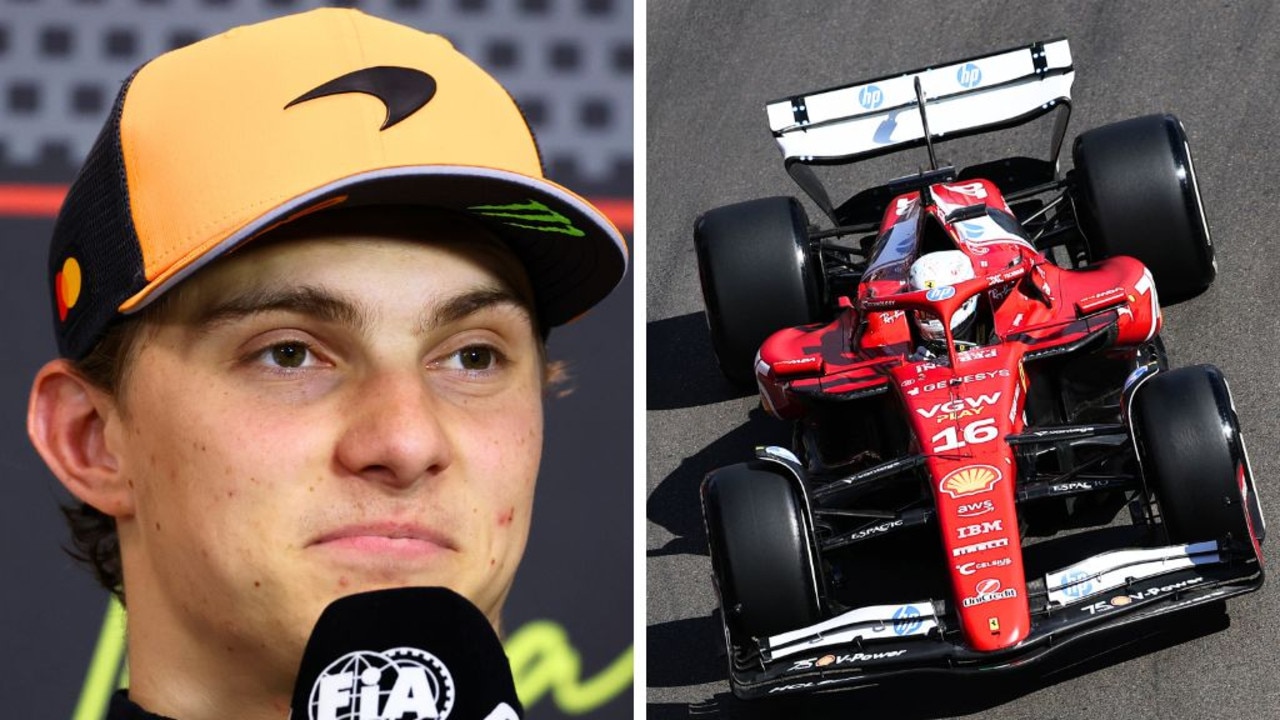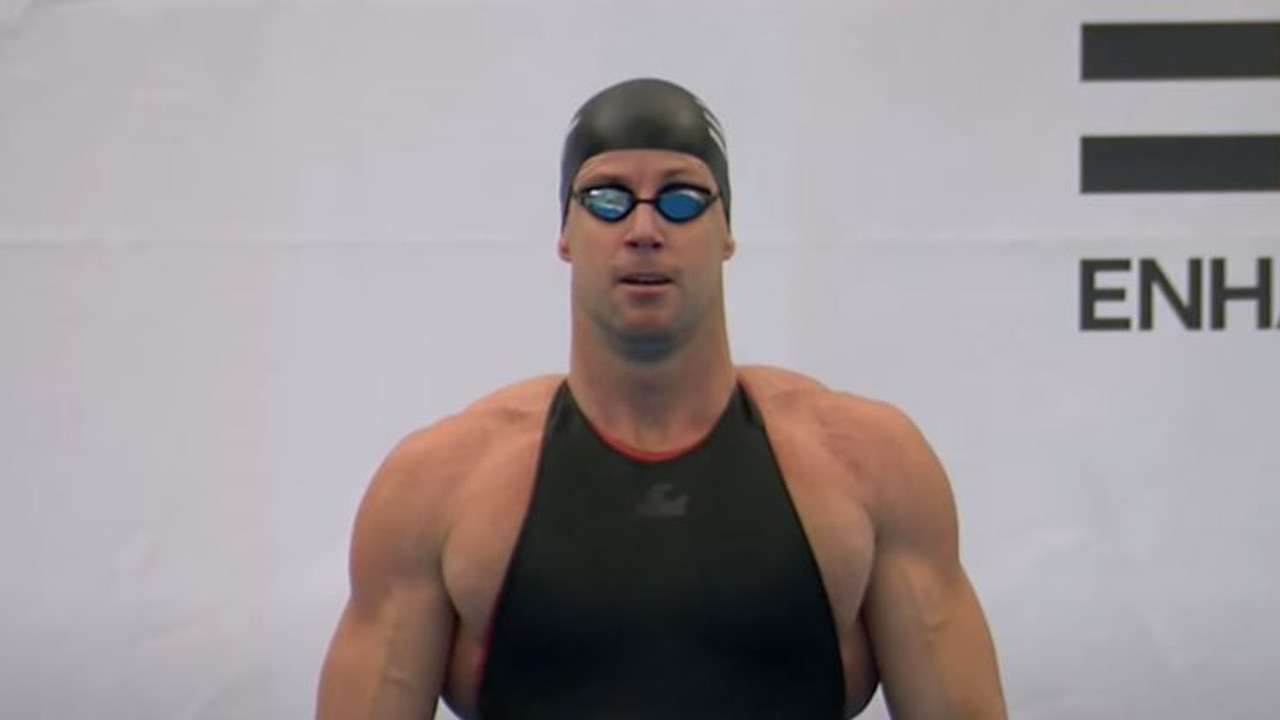Australian Open slammed for $100m deal with Chinese company amid Russian invasion in Ukraine
Should the Australian Open be reviewed over its lucrative side deals with Chinese investors amid the Russian invasion in the Ukraine? There are calls for a review.
Sport
Don't miss out on the headlines from Sport. Followed categories will be added to My News.
The Australian Open’s $100 million sponsorship deal with a state-owned Chinese liquor company is under attack.
Calls for Tennis Australia to review its arrangement with the distillery giant Luzhou Laojiao follows China’s refusal to condemn Russia’s invasion of Ukraine and the tournament’s contentious ban on protests in support of missing Chinese female tennis player Peng Shuai.
Spruiked as “one of the largest deals that Tennis Australia has ever negotiated”, the sponsorship deal includes prominent signage in English and Chinese at Rod Laver Arena.
Embattled TA chief executive Craig Tiley came under fire during this year’s Open after spectators were banned from wearing “Where is Peng Shuai?” T-shirts.
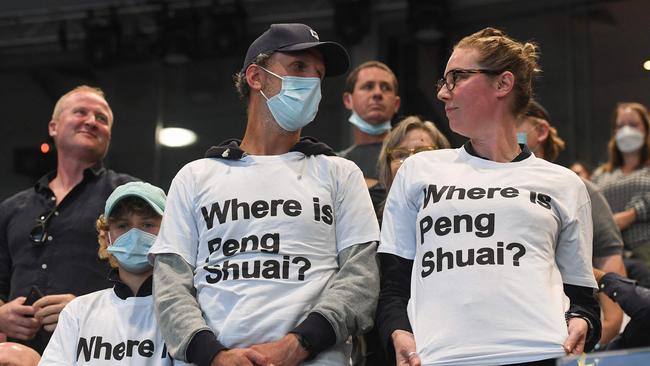
Shuai disappeared after making claims of sexual misconduct against a Chinese Communist Party figure.
Shadow Attorney-General Michael O’Brien told News Corp he wanted Tennis Australia to “confirm whether any sponsor sought to influence its response to spectators highlighting the plight of Chinese tennis star Peng Shuai”.
“If so, that sponsorship must be reviewed,” O’Brien said.
“We know Daniel Andrews Government’s dodgy Belt and Road deal with the Chinese Government sacrificed Victoria’s values for the sake of a foreign dollar.
“But our major sporting events – made great by the support of millions of Victorians – must not do the same.
“Fundamental rights such as freedom of speech should not be trashed by sporting codes chasing sponsorship dollars.”
O’Brien said Victorian taxpayers had built Melbourne Park, “not foreign sponsors”.
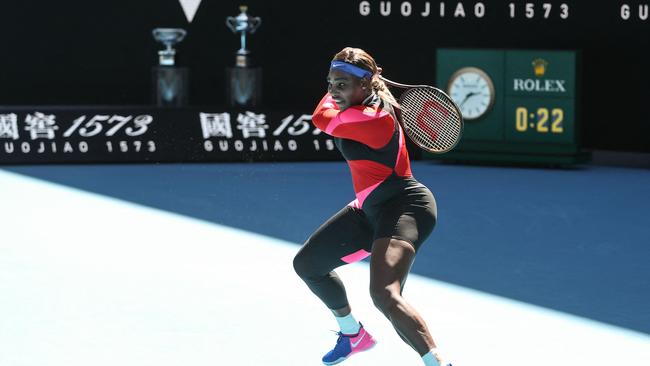
“Victoria won’t recover and rebuild if our values are for sale to the highest bidder,” he said.
“Whether it is supporting the people of Ukraine or asking ‘where is Peng Shuai?’ we must not let the politics of sponsors dictate who we are or what we stand for.”
Ex-World Vision Australia boss the Rev Tim Costello told News Corp the Luzhou Laojiao deal should “absolutely be reviewed”.
“Now that it seems clear that China will not condemn Russia, and are continuing to trade with them – as we watch excruciating scenes of bombing Ukrainians – China has to be brought to account,” Costello said.
“We either stand for something or we fall for everything.
“We take (their) money and wash it with sporting respectability.”
Tennis Australia responded with a statement to News Corp, denying any wrongdoing, saying it scrutinises all its commercial partners.
“Tennis Australia has always undertaken formal due diligence in assessing any potential relationship with international partners and suppliers and continues to do so,” the statement said.
“Any suggestion Tennis Australia has been silenced on human rights, or any other issue, by partners seeking to influence our affairs is categorically false.
“Policies and guidelines in place when working with potential partners include analysis of whether a third party conducts business anywhere that is classified as a high-risk country or region.
“Tennis Australia will not tolerate any conduct that is not consistent with these guidelines, and we have always reviewed contractual arrangements throughout the year.”
TA’s monster five-year deal with Luzhou Laojiao was sealed in October 2018.
At the time of its unveiling, TA chief revenue officer Richard Heaselgrave said it was “one of the largest deals that Tennis Australia has ever negotiated” and “definitely within the ballpark” of the partnership it enjoys with $85 million major sponsor Kia.
TA has offices in Shanghai and Hong Kong and has positioned the tournament as the “Grand Slam of Asia-Pacific”.
A TA insider said concerns over the tournament’s decision to accept sponsorship from a Chinese firm were raised internally at the time the deal was signed.
“None of the other Grand Slams would have touched them,” the insider said.
“It’s massive (deal) … but the problem is the reputational damage that it does.
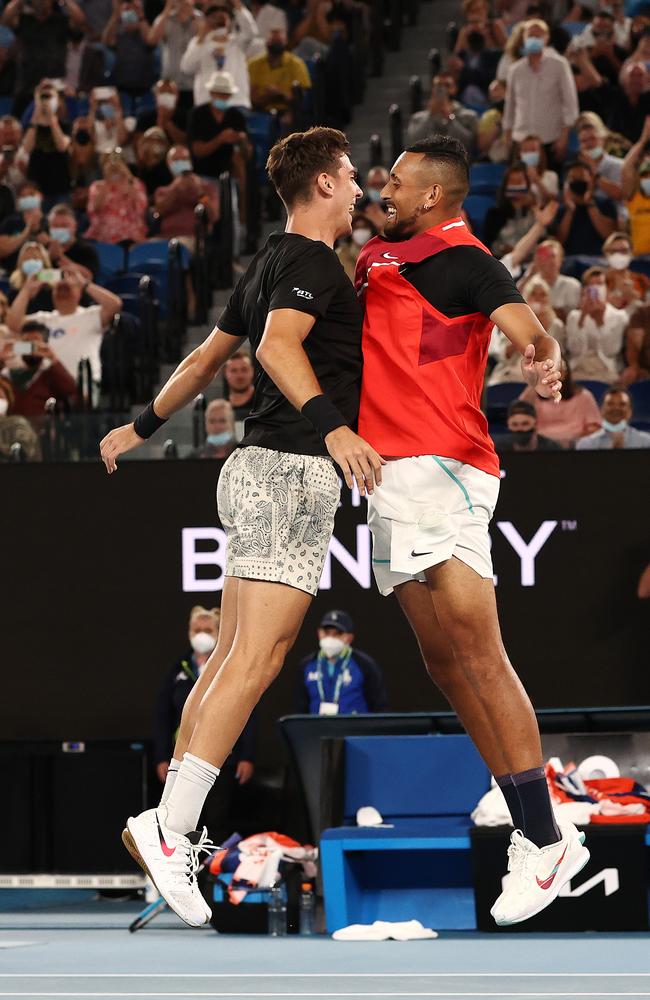
“The players come here and love the fact that we are Australian and a bit different – and now we are making it look like a big Chinese tournament.”
Professor Catherine Ordway, an international expert in sports integrity at the University of Canberra, said of the Luzhou Laojiao deal: “That sponsor has been in place for a long time, and it feels clear to me that that’s not a sponsorship that’s meant to interest the Australian public because we don’t even know who they are.
“I remember looking them up and I still don’t really remember who they are because I thought why are they there and what does that symbol mean? Obviously it’s meant for the Chinese public, so that’s an influence for them. So then you say, ‘well, is that a problem because it’s not impacting us anyway?’ But is it impacting in the sense that we’re not now rushing out, buying Chinese gin but is it a problem because the money is coming from a Chinese company? And what do we know about this Chinese company? What do we know and what can we know?”
THE MAKINGS OF THE DEAL
Li Na’s historic victory in the women’s singles at the 2014 Australian Open opened the floodgates for Tennis Australia’s foray into China.
TA financial reports make repeated reference to the tournament’s targeting of the lucrative Chinese market.
“The Australian summer of tennis recorded 937 million hours viewed globally. China was the No. 1 nation for that global audience, with 193 million AO hours viewed, an increase of 82 per cent on the previous year,” a recent TA report declared.
“It included 4.9 million viewers on CCTV5 during the men’s final – the most watched men’s final in China ever.”
Amnesty International campaigner Nikita White said investment in sport by states with poor reputations on human rights “led to people being silenced”.
Asked if this year’s Peng Shuai T-shirt ban – later overturned – was linked directly to Tennis Australia’s commercial arrangement with Luzhou Laojiao, White said she did not know:
“Either way … often what we see when talking to sporting entities is that there is often a reluctance to talk about politics and human rights in particular.
“What we are calling for is for human rights to be considered when people are assessing ownership or sponsorship bids.”
Originally published as Australian Open slammed for $100m deal with Chinese company amid Russian invasion in Ukraine
Read related topics:Russia & Ukraine Conflict

